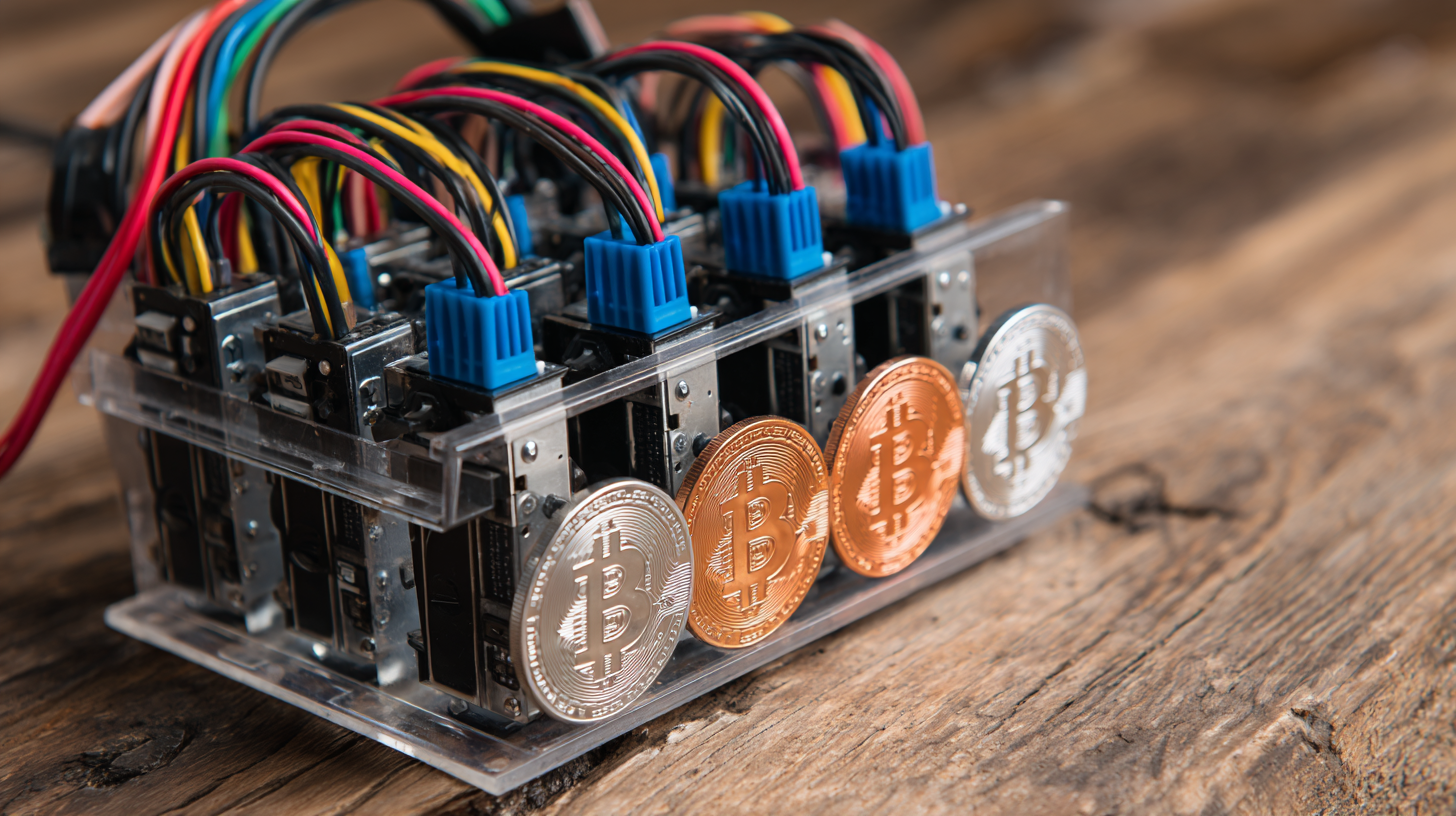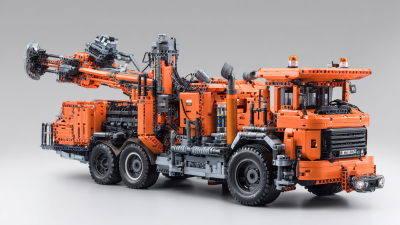Leave Your Message
In the ever-evolving world of cryptocurrency, selecting the right Bit Coin Miner is paramount for both novices and seasoned miners alike. With an array of options flooded in the market, it can be overwhelming to sift through the various models and specifications to find the best fit for your unique needs. This comprehensive guide aims to simplify the process by offering essential tips and insights into the key features and considerations to keep in mind when selecting a Bit Coin Miner. From understanding hash rates and energy efficiency to evaluating cost versus performance, we will equip you with the knowledge necessary to make an informed decision. Whether you're aiming for personal investment or looking to set up a larger mining operation, choosing the right Bit Coin Miner can significantly impact your success in the cryptocurrency arena. Join us as we delve into the intricacies of mining and help you find the perfect miner for your endeavors.

Understanding Bitcoin mining is crucial for anyone looking to enter the cryptocurrency space. At its core, Bitcoin mining is the process by which transactions are verified and added to the public ledger, known as the blockchain. According to the Cambridge Centre for Alternative Finance, as of 2021, the Bitcoin network's hash rate was around 150 exahashes per second (EH/s), reflecting the immense computational power required for mining. This impressive statistic underscores the competitive nature of the sector, where miners race to solve complex cryptographic puzzles to secure rewards in the form of newly minted Bitcoins.
The profitability of mining can fluctuate significantly based on various factors, including electricity costs, hardware efficiency, and Bitcoin's market price. A report by Hashrate Index reveals that the average cost of mining a single Bitcoin can range from $7,000 to $12,000, depending on electricity prices and mining hardware. As the mining landscape continues to evolve, understanding the hardware specifications and operational efficiency—measured in terahashes per second (TH/s)—is essential for optimizing investment and maximizing returns. With energy consumption being a critical concern, aspiring miners must also be aware of sustainability practices and explore alternatives like renewable energy sources to reduce their environmental impact while remaining profitable.
When choosing the best Bitcoin miner for your needs, the first step is to clearly identify your specific mining goals and requirements. According to the Cambridge Centre for Alternative Finance, the global Bitcoin mining industry consumes approximately 100 terawatt-hours (TWh) annually, correlating closely with the efficiency of your mining equipment. This makes assessing factors like energy consumption and hash rate crucial. For instance, miners typically seek a balance between their initial investment and long-term profitability, as equipment with a higher hash rate often leads to greater mining rewards.
In addition to hardware efficiency, consider your electricity costs, as they can significantly impact your bottom line. A report from the International Energy Agency highlights that energy costs can account for over 60% of a miner's operating expenses. Thus, selecting a miner that optimally balances power consumption with performance could mean the difference between a profitable venture and an unprofitable one. Evaluating local electricity tariffs and potential renewable energy options can further enhance your operation's sustainability and cost-effectiveness, enabling you to tailor your mining approach to achieve the best results based on your financial situation and energy resources.

When choosing the best Bitcoin miner for your needs, it's crucial to understand the key features that will impact your mining efficiency and profitability. One of the most critical aspects is the hash rate, which measures the miner's performance in solving cryptographic puzzles. According to a recent report from the Cambridge Centre for Alternative Finance, the average hash rate for Bitcoin is approximately 200 EH/s, with top-tier miners capable of exceeding 100 TH/s. Selecting a machine with a higher hash rate can significantly improve your chances of earning Bitcoin rewards.
Another vital element to consider is energy efficiency, often measured in joules per terahash (J/TH). The Bitcoin mining sector is highly competitive, and energy consumption constitutes a significant portion of operational costs. For instance, a 2023 report by Bitmain highlights that newer models like the Antminer S19 XP boast an efficiency of 21.5 J/TH, enabling miners to maximize profits while minimizing electricity expenses. Additionally, consider the cooling requirements, as effective cooling strategies can prolong hardware life and reduce downtime, ultimately enhancing overall profitability.
When considering the right Bitcoin miner for your needs, it's crucial to compare the different options available: hardware and software miners. Hardware miners, primarily ASIC (Application-Specific Integrated Circuit) miners, are purpose-built machines designed specifically for mining Bitcoin. According to the Cambridge Centre for Alternative Finance, as of 2022, the global Bitcoin network was powered by over 130 EH/s (exahashes per second), predominantly through these highly efficient hardware miners. Devices like the Bitmain Antminer S19 Pro can achieve up to 110 TH/s with a power consumption of approximately 3250W, showcasing the significant performance advantages of hardware mining.
On the other hand, software miners offer more flexibility and accessibility, especially for individuals not ready to invest heavily in expensive equipment. Many software options allow users to mine through their existing hardware or join mining pools, which can reduce the variance associated with earning Bitcoin. However, the efficiency of software mining falls short of hardware solutions; a report from Coinshares estimates that software mining yields roughly 10-15% of what ASIC miners can produce. This disparity highlights the essential choice miners must make, weighing the high efficiency of hardware miners against the accessibility and lower initial costs of software solutions in their mining strategy.
| Type of Miner | Power Consumption (W) | Hash Rate (TH/s) | Price Range (USD) | Efficiency (J/TH) | Best for |
|---|---|---|---|---|---|
| ASIC Miner | 1500 | 100 | 2000 - 8000 | 15 | High rewards with lower competition |
| GPU Miner | 800 | 40 | 1000 - 3000 | 20 | Flexibility for mining multiple cryptocurrencies |
| CPU Miner | 200 | 5 | 100 - 500 | 40 | Small scale or hobby mining |
| Cloud Mining | N/A | Varies | 20 - 500 | N/A | No equipment needed, minimal technical knowledge required |
When venturing into Bitcoin mining, budgeting is a crucial aspect that can significantly determine your success and profitability. First, you need to factor in the initial costs associated with your mining setup, including the price of miners, cooling systems, and power supplies. High-performance ASIC miners may require a larger upfront investment, but they can yield higher returns over time, making them a worthwhile consideration for serious miners. Additionally, don't overlook other expenses such as electricity bills, which can vary by location and greatly impact your operation's profitability.
Return on Investment (ROI) is another critical metric to evaluate when budgeting for Bitcoin mining. To accurately assess your potential ROI, consider the current market price of Bitcoin, mining difficulty, and your operational costs. Conducting a thorough analysis using online mining calculators can help you project your earnings based on different inputs and scenarios. Keep in mind that the cryptocurrency market is volatile, so always maintain a flexible budget and be prepared for market fluctuations that could affect your profitability in the long run.







